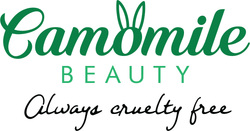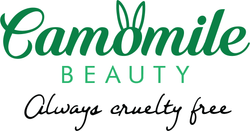The Essential Oil Guide Part 3: Cleaning, Disinfecting and Room Sprays
Posted by Admin account on

Written by Christina Storto on 2018/10/7
Essential oils have many uses outside of aromatherapy. Many people use them to scent, disinfect and clean their homes. Essential oils are one of the best-smelling, naturally antibacterial options for homemade cleaning recipes.
We all know that man-made cleaning products can be very toxic. Just one look at the warning labels can make you question the product itself. Making your own cleaning products may sound like a daunting process but you'll be surprised just how easy and fast it is. You can go green with your laundry routine, sanitize the kitchen and nix mold in the bathroom – all while making your house smell ‘clean’ – no scary fumes needed! If you are looking for a safe and natural way to clean your home then this post is great for those wanting to dip their toes into green cleaning.
Why Are Essential Oils Good for Cleaning?
Aside from their lovely scents, many types of plant essences are well-known and accepted for their antimicrobial qualities. Pure essential oils are so potent that they can destroy certain microbes (bacteria, fungus and viruses) with the compounds they contain. With all of the cleaning recipes you can make at home, why not add some extra cleaning power and pizzazz by adding in essential oils?

1. LEMON
Loved for its light, clean scent, this essential oil is also a powerhouse in homemade cleaning recipes. Naturally antibacterial and antiviral, lemon is commonly used to de-grease stubborn stains as well as freshen the air. Use it to deodorize your fridge, clean the floor or combine 10 drops with 1/2 cup olive oil for a natural wood or leather polish.
2. TEA TREE
Is there anything tea tree oil can’t do? It fights germs, bacteria and viruses in everything from homemade wipes to hand soap to daily shower spray. Tea tree oil is a handy weapon against bugs, too. Add tea tree to a spray bottle with water, shake well, and spray outside and inside the home to deter them from in and around your home.
3. ROSEMARY
Rosemary’s natural antibacterial and antiseptic properties make it a great addition to homemade dish soap and laundry detergent. Essential oils are perfect for homemade air freshener sprays, and the combination of peppermint and rosemary is perfect when when you need to stay focused and on task.
4. SWEET ORANGE
Not only does orange oil have a happy scent, but, like lemon, it’s great against grease. Use 1-2 drops to lift grease or glue from surfaces or combine 12 drops with 1/4 cup castile soap and water to wipe down stovetops and counters. There are tons of ways to use orange oil, including a natural floor cleaner, and an energizing kitchen spray.
5. LAVENDER
One of the best-smelling naturally antibacterial essential oils is lavender. Lavender pairs well with another common natural cleaner, vinegar. Just add 4-5 drops of lavender to your vinegar cleaning mixture for its natural antibacterial properties – and for a more bearable scent. Harness lavender’s soothing scent in homemade dish soap and linen spray to elevate washing dishes and laundry day.
6. EUCALYPTUS
This natural germicide is a powerful dust mite buster. Use it with baking soda to deep clean your mattress or just put a few drop in your next wash cycle. With its clean smell, eucalyptus is great for stinky jobs in the kitchen and bathroom. It's also my go to room spray scent as it mimics the exact smell of a spa, so relaxing and uplifting! Eucalyptus leaves and essential oil are great in cupboards to deter pests as well.
7. PEPPERMINT
There are countless uses for peppermint oil around the home. Its cool, invigorating scent and antibacterial properties make it a great addition to spray cleaners and natural deodorant spray. For an air freshener that also deters ants and spiders mix 10-15 drops of peppermint essential oil with 1 cup of water in a spray bottle. Shake well and spray along cracks and crevices or wherever ants are seen.
Cinnamon is naturally antibacterial and antiseptic. Powerful against mold, it’s a great addition to homemade mold and mildew spray. Great for an Autumn inspired room spray as well! Cinnamon essential oil is also effective against pests. Apply pure undiluted cinnamon essential oil to the areas with a cotton swab.
9. PINE
Already a common ingredient in cleaners (Pine-Sol anyone?) pine oil is effective at killing yeast spores, E.coli and other household germs. Pine is perfect for ridding the bathroom of mold and mildew and cleaning hard floors while leaving a natural fresh scent.
10. THYME
Thyme is one of the most powerful essential oil weapons against germs. Thyme is effective against salmonella so you can add it to homemade dish soap and use it to clean cutting boards that have come in contact with raw meat.
Share this post
- 0 comment
- Tags: essential oils




